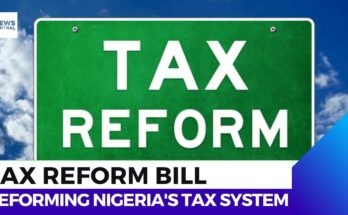On face value, co-opting Aliko Dangote, Tony Elumelu and other captains of industry into the Presidential Economic Coordination Council (PECC) looks like a brilliant idea. These are highly successful men in their own rights; among the very best that our country has to offer. Dangote is the richest black man on the planet while Elumelu is arguably the topmost black banker alive. So, If they can do it for themselves and their business empires, surely they can do it for their country, right? Wrong!
If anything, this move by President Tinubu sets off alarm bells which we will do well not to ignore.
First, it is an admission of failure by the Tinubu cabinet on the economy agenda. For over a year now, Nigeria’s largest ever cabinet has not only plunged the country into its worst economic season on record but also failed to apply the breaks or engage reverse gear. Yet, instead of sacking the economy management team of his cabinet for work not done, President Tinubu is outsourcing their jobs whilst they are still drawing salaries and allowances at public expense!
This is not only rewarding incompetence but setting a booby trap for any new initiatives that might come. Incompetence cannot profitably supervise competence.
Worse still perhaps, inviting individuals from the private sector to play a leading role in public policy formulation is like a match referee handing over his whistle to a player of one of the opposing sides in the middle of a game! Things are not done that way, especially in the modern, post-industrial economy.

Government is the referee or regulator of every national economy. Businessmen are players on competing sides within the economy league. Whatever plan this PECC produces under the influence of key private sector players may be blighted by ethical concerns, including conflict of interest, insider-dealing and state capture.
Worldwide, captains of industry are rightly recognized as growth drivers and highly valuable citizens. But they are not appropriately tooled or suitable in public policy roles, except as part of the organized private sector in open consultative capacity. Indeed, the norm in advanced market economies is to build systems which limit their powers and prevent excessive influences that ultimately hurt free enterprise.
In the US, the role of big business in public policy during the late 19th and early 20th centuries led to gross abuses and infringements in the political and social order. The backlash was the great Antitrust Movement and a slew of legislations which forbid monopolies and discourage business interests from having excessive power over consumers and state policies. Most of those laws are still in place to this day.
The Nigerian economy is not the first globally to need an emergency fix. It must learn from, not repeat well documented mistakes of the past.
Nor is fixing the Nigerian economy such a difficult and complex task. Everyone on the street knows what needs to be done: (1) Stop corruption (2) Reduce cost of governance (3) Encourage local production to meet domestic needs and sell surpluses in international markets (4) Halt imports in non-critical sectors, especially those with viable local alternatives It only requires sincerity to place strategic national and public interest over narrow, prebendal, sectional and selfish interests.

The role of government is to create a level playing field and an enabling environment for ALL to thrive, thus stimulating and inspiring the emergence of the best in their respective fields to build a productive and globally competitive economy – not a consumptive economy and a dumping ground for foreign goods and services. This is a global, time-tested template.
So far, the Tinubu administration has shown little capacity and zero aptitude in playing this crucial role. Throwing Dangote, Elumelu and their ilk into the mix will do little to change the fundamentally flawed and rapacious mindsets that drive the political machine currently in power.
Nigerians are a people of proven entrepreneurial and innovative energy on a global scale. Everywhere they go, they excel – except in their own country. When the right leadership mentality and governance policies emerge, the task of rebuilding our collapsed national economy and ethos can begin in earnest. Until then, it appears that we are moving at full speed in reverse gear.
![]()





